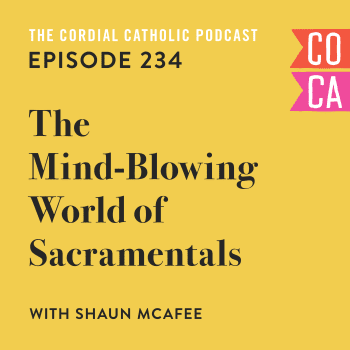Author's Note: Part Two of a series on Finding Voice. This is an essential part of the contribution of Hebrew Mysticism, often referred to as Kabbalah, to the great symphony of World Spirituality. Read Part One here.
The First Stage: The Silence of Absence
The passage in the Zohar cited in last week's installment (Exodus 25a) suggests that there are three distinct stages in the continuum from slavery to freedom. The first stage is silence. The second stage involves moving from silence to sound without speech. And the third stage is speech—voice and articulated word.
In the first stage, slavery, we are mute and dumb. We live our lives without ever really crying out. The routines of the everyday deaden our sense of injustice, and our passions atrophy amid the narrowness of Egypt, when all sounds are smothered in our throats. In the biblical myth, the people were silent in the first stage of exile in Egypt. The pain broke their spirits and they became mute—no longer able even to cry out, much less to express the injustices with the eloquence of speech. We all have touched a fraction of that experience when, after a protracted argument, we are so worn down that we lack the strength to protest even the most blatant offenses of those who oppose or oppress us.
In a less familiar reading of the biblical story, Talmudic masters suggest that the slavery in Egypt was not of the usual kind. In fact, the Israelites were successful and prosperous. However, the deadening quality and comfort of their routine had anesthetized the sensitivity to their own wounds of alienation. How many of us suffer and hurt, yet remain fundamentally unaware of our suffering, deadened by the soma pills of the expected, and the narrow straits of success?
The disease of leprosy in the ancient world was considered so horrible not just because it caused extreme disfigurement. That was only a side effect. The agent of the disease itself was a bacterium called Hansen's Bacillus, which destroyed the nerve fibers carrying the sensation of pain. In this painless state, a person could continue walking on a broken leg, thus causing irreparable damage and further disfigurement—and even greater estrangement from the world at large.
To be numb to pain is to be prone to a deeper damage. The anesthetizing effect of unbearable agony (or apathy) can be the most devastating enemy of all. The biblical slaves were broken bones being pressed with burdens they could not hold, and their nerve endings went numb to the weight. Their enslavement was complete when they "lost their nerve" to act up and to cry out.
Biblical myth writer Y. L. Peretz, writing at the turn of the last century, tells the story of Bonsche the Silent:
All the heavens were in an uproar. Bonsche the Silent, the most righteous man, had died. Bonsche, who never complained and always accepted his fate with graceful silence, was coming to heaven—what a day! The angels exuberantly recounted the tales of humility of this silent saintly man—how he never asked for anything, was always simple, accepting, and sublimely silent! The angels rolled out the reddest celestial carpet they could conjure; the other celestial hosts were eager to honor their celebrity; and even God was getting involved.
On his arrival to heaven, Bonsche was granted a meeting with God. This was more than unusual—it was never done; but for holy Bonsche an exception was made. He came before the throne and heard the divine voice say, "Ask for anything. Anything you want is yours."
Never had the celestial hosts heard anything like it. Every ear strained to hear—what would Bonsche say?
Bonsche was a little overwhelmed by all the attention. After all, he viewed himself as a simple man. He responded to God, "It would be wonderful if I could have a roll and butter every day."
When my Buddhist brothers heard this story, they went wild. What a Satori story, they said, what an example of total detachment and simplicity, the reduction of all expectations, the giving up of desire even when God offers you everything!
Yet the biblical myth perspective reads this story differently. We say, "What a shmuck!" God offered Bonsche everything and all he could think to ask for is a bagel and butter? If he wanted nothing for himself, then what of a world that suffers so? For them as well he could think of nothing to ask? Master or not, was he so absent from himself that he could also no longer feel the joy or pain of another?




